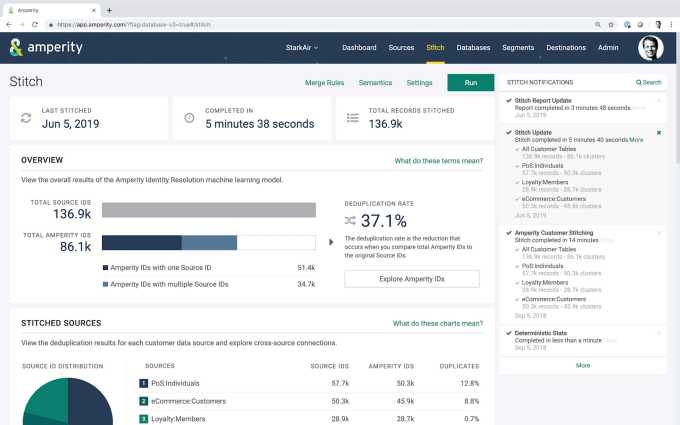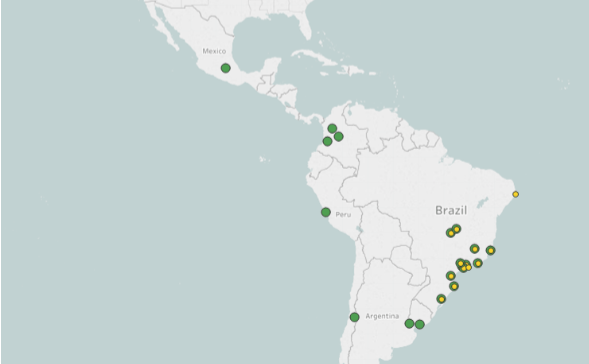Amazon’s strategy to bring more brick-and-mortar options into its vast e-commerce empire, and its ambition to sell more pharmaceutical products, today may have found themselves a little more knitted together. The company announced a new service in the US called Counter, a free in-store pick-up service where Amazon shoppers can arrange to collect packages. And its first partner in the new effort? None other than one of the bigger names in drug stores: Rite Aid.
The two will kick off Counter with availability in “over 100” Rite Aid locations across the US. The longer-term plan for Amazon is to expand the pick-up option to 1,500 stores (including other retail partners) by the end of 2019 — a very quick ramp-up in the next six months.
In an interesting geographic reversal of how Amazon rolls out services, this one launched first in Europe, by way of a partnership with the clothes retailer Next in the UK, and Giunti Al Punto Librerie, Fermopoint and SisalPay in Italy. Amazon said the service has so far “been positively received, driving strong customer engagement and additional foot traffic for partners” in those markets.
The deal is a development on Amazon’s bigger strategy to take its business — born and raised online — into ever-more traditional retail settings, both to increase options for its online shoppers, as well as bring more customers into the fold who prefer to procure their goods in person rather than by post. Other very big moves on that front have included trying out its own cashier-less retail locations, setting up bookshops on university campuses, and of course buying Whole Foods.
This latest deal is one of its blended approaches, where online shoppers are given the option of getting in person.
“Amazon is always looking for innovative and convenient ways for customers to ship and receive their orders,” explains Patrick Supanc, Worldwide Director of Amazon Hub, which also includes its Locker, Locker+ and Apartment Locker pick-up services, in a statement. “With Counter, we’ve leveraged our growing logistics network and invested in new, easy to use technology to give customers yet another delivery option rooted in flexibility and control. We are excited to partner with national businesses like Rite Aid, and local businesses in the future, to create an outstanding experience for our shared customers.”
The expansion to more pick-up options as an alternative to home delivery is partly out of practicality.
First, people are still spending, overall, way more time and money in physical retail locations than they are in virtual ones, with the latest US census figures putting the figure at just 10 percent of retail sales being made through e-commerce.
Second, having packages delivered at home is not always convenient if you work in an office and do not have suitable back-up neighbors or a porter to sign for your packages, or you have had problems with package theft if parcels are left outside.
Other options Amazon has been adding on the brick-and-mortar retailer front have included Amazon Lockers locations in stores (most recently Stein Mart), as well as partnering with stores to take exchanges (such as its deal with Khol’s). In both cases, the incentive for the stores is to bring people into the stores who will do more than just deal with their Amazon business; they might shop, too.
That will also be a hook that Rite Aid will hope to use.
“Creating a seamless, convenient customer experience is a key element of our strategy and digital transformation,” said Jocelyn Konrad, Executive Vice President, Pharmacy and Retail Operations of Rite Aid, in a statement. “Being the first store partner for Counter in the U.S. is a differentiator for Rite Aid and we believe our partnership with Amazon, that includes Locker, creates a stronger in-store experience for existing customers and new customers that come in to pick up their packages.”
To be clear, Amazon doesn’t make any mention of Rite Aid’s core business as a pharmacy, but given what else we know about Amazon’s ambitions in that area it seems very notable.
Last year, Amazon acquired online pharmacy PillPack for just under $1 billion (a sum that includes earn-outs and the full value of the deal, sources tell us), prompting many people speculating about how it might use it to move into a deeper into the very lucrative world of pharmaceuticals.
That idea was buffered by the fact that it also launched a healthcare JV in partnership with Berkshire Hathaway and JP Morgan, and it has also been making other gradual moves into the medical sector with the sale of supplies.
While Amazon never got very far with its investment and partnership years ago with Drugstore.com (which was eventually acquired by Walgreens and shut down), it seems that a retail partnership with a drug store chain could be an obvious way of extending not just its pick-up parcel network, but also a way of bringing PillPack the physical delivery world.



